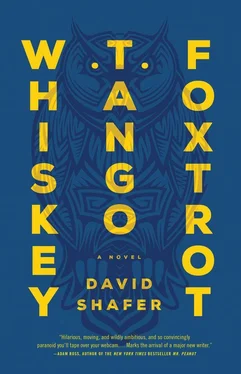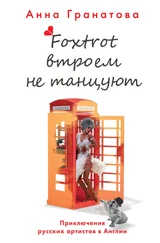And when Roxana’s staggering linguistic and computational skills began to emerge, the people who had helped felt vindicated, and they helped more. The circle of benefactors grew. Now Roxana was a prodigy, not a travesty. There were all sorts of scholarships for an armless girl who at eleven had learned to speak fluent Ojibwa from a documentary on PBS. Magazines and TV news shows even called, and Mariam and Cyrus said, Yes, of course, run a profile, but we’re sorry, no photos, which made most of the magazines and all of the TV news shows go away.
Leila hadn’t even noticed her sister’s missing arms until around age seven. Then one day at the corner store, Roxana balanced on one leg like a shorebird and used her toes to count her change at the candy rack. Gross, Dad, look! said a boy. And his dad yanked his hand, and in a flash Leila understood that Roxana’s armlessness was a problem . It was grotesque. Leila had four stuffed unicorns, but all her dolls had arms. Her sister was the only one . Leila glared daggers at the boy, then went home and cut the arms off her dolls.
Roxana did a steely job of ignoring the gapes and gasps, and she also ignored the limitations it was assumed she had. At eighteen, a junior at Cal, she announced that it was her intention to become a doctor. No one had the balls to say to her, But you have no arms, so she pursued that for a few years. As it turned out, Roxana’s lack of interpersonal skills posed more of a problem than her lack of arms. When an MD career was ruled out (“Well, you can’t really lay hands on people, now, can you?” said Dylan one Thanksgiving), Roxana moved to research genetics, and then to research oncology. In these labs and faculties, she was generally ten years younger than her closest-in-age colleague. From oncology, Roxana moved into some sort of mathematical-linguistic crossover research that Leila had never been able to grasp. The last time Leila had visited Roxana at work, she’d been at some laid-back cubicle-based research facility in Pasadena — Leila remembered a golden retriever wandering the halls and a lunch bag in the break-room fridge that said I am Jim’s sandwich. If you are not Jim, don’t eat me.
Roxana had a new job now, and Leila assumed from the company’s name that it was in some kind of astronomy facility. As it turned out, though, it was in a huge, windowless building that Leila could see minutes before she found a way to reach it. It looked like it was right there, but then the exit to it was suddenly four lanes over, and you’d have to be a test pilot to cross them in time. Leila pulled all the way around in a tedious loop and made another pass, this time making the exit. The maneuver also allowed her to shake Stan’s Sewerscopes, which was a relief.
She parked beside a freeway pier, in the thick shadow of its rumbling deck, and spent ten minutes looking for a front door to the mammoth building. She walked by it twice before she noticed a small sign beside an otherwise unmarked door that read LA County Large Array Facility Visitors Must Wear ID at All Times.
Leila waited at the front desk for Roxana to collect her. There was only one wooden bench in the lobby. Nothing else. Not a magazine or a potted palm or a wastebasket. Leila sat on the bench, the pleasing heft of a white deli bag on her lap: chicken salad sandwiches and pickles, Roxana’s favorite. It was quiet in the desolate lobby, so quiet that Leila could hear the small hydraulic hiss of the receptionist adjusting her desk chair.
Her sister arrived wearing what looked like a desk lamp with a huge whisk on the end of it, secured to her trunk with straps. It was one of the beta-version prosthetics she sometimes wore, test-driving them for a prosthetics-inventing friend. She did it as a favor: no robotic arm would ever give Roxana anything close to the grace and functionality she achieved with her dexterous legs and feet.
“These came for you, Dr. Majnoun,” said the receptionist, and she held up a worn manila interoffice envelope as well as a USPS Express envelope. She handed these to Roxana’s robotic-whisk-clamper thing without clumsiness or embarrassment.
“What’s with the no-signage and why’d they take my phone?” Leila asked Roxana as they walked to a bank of elevators.
“There’s a fifty-tesla magnet on the third floor of this building,” said Roxana. “For the Plasma Working Group. And I think they get a lot of Pentagon money, so the whole building has to be secured.”
“Wow, a fifty-tesla magnet, huh?” said Leila. She was imagining a gigantic horseshoe-shaped magnet in a vaulted laboratory, little lightning bolts zapping from its feet, attracting distant paper clips.
Leila hadn’t understood Roxana’s work in twenty years and knew only that Roxana now worked in a field called control and dynamical systems and that she’d spent the past five years “modeling language” and that two years ago she’d won a lucrative prize that nonscientists have never even heard of and that three Czech mathematicians in their sixties were totally supposed to win that year. Since then, Roxana had been operating in extremely-smart-people world, a world in which her severe physical handicap was no professional impediment. Her colleagues were in far-flung learning capitals, screens away, married to desks and number clusters like she was. Her job required neither arms nor tact.
And so the girl whom the neighbors told the parents to throw out when she was born now worked in the upper atmosphere of the world’s best research institutions.
They ate their sandwiches in Roxana’s little office, which was all screens and tablets and specialized furniture. Also a lot of cacti. No photographs. Roxana didn’t eat in front of anyone but her family and a few lifelong friends. Even the well-meaning and well-trained couldn’t help but stare, and once or twice people in restaurants had asked loudly to be sat well away from her.
But in fact Roxana was so graceful that Leila, in her sister’s presence, felt her own arms were excess appendages, that Roxana was a swan and she was a spider.
“I wanted to say thank you, Leila,” said Roxana a few bites into her sandwich.
What was this? Roxana didn’t exactly rain thank-you s. Leila couldn’t remember the last one.
“For what?”
“Dylan said you know the people who got us the proof that Dad’s computer had been tampered with. So thank you for that. If that’s why you were delayed coming home, I’m sorry I was a jerk about it.”
“That’s actually what I need to talk to you about. Not about your being a jerk. I’m used to that”—a smile, to show that this was just play—“but about the people who got us the proof. Rox, I need your help finding them again.”
“What do you mean?”
Leila’s plan was not to get into the politics with her sister. Politically, Roxana was well to the right of Leila. Always had been. When Leila, at ten, had sat behind a cardboard box soliciting donations for Save the Whales, Roxana had really grilled her: Do you even know what they do with the money you send them?
So when Leila told Roxana the story, she told a truncated version. She told Roxana about Ned and Ding-Dong.com, how the owl icon had appeared on and vanished from her desktop. She said she’d been “diverted” to Dublin, and that she’d met some people there who had told her that they had proof that their dad was framed by a totally evil cabal. She said the Dublin people had asked her to meet with someone in Oregon to find something out for them, and that, in return, they would provide this proof that might clear her father.
Stumbling through it, Leila saw that she was leaving sizable gaps in the story, gaps that Roxana would probably want filled in before she’d help. Leila kept talking, hoping to race past the gaps. “So if there were, like, a hidden Internet — like, hidden inside the real one — would you know how it could be accessed? Or would you know someone who knows? Weren’t you doing that kind of work for a while, at PARC, that place in Pasadena? Because this woman in Dublin definitely said I could find her through the Dear Diary homepage.”
Читать дальше












